They hail from Facebook, Netflix and YouTube. Their mission? To get more Black product managers in tech. Here’s why.
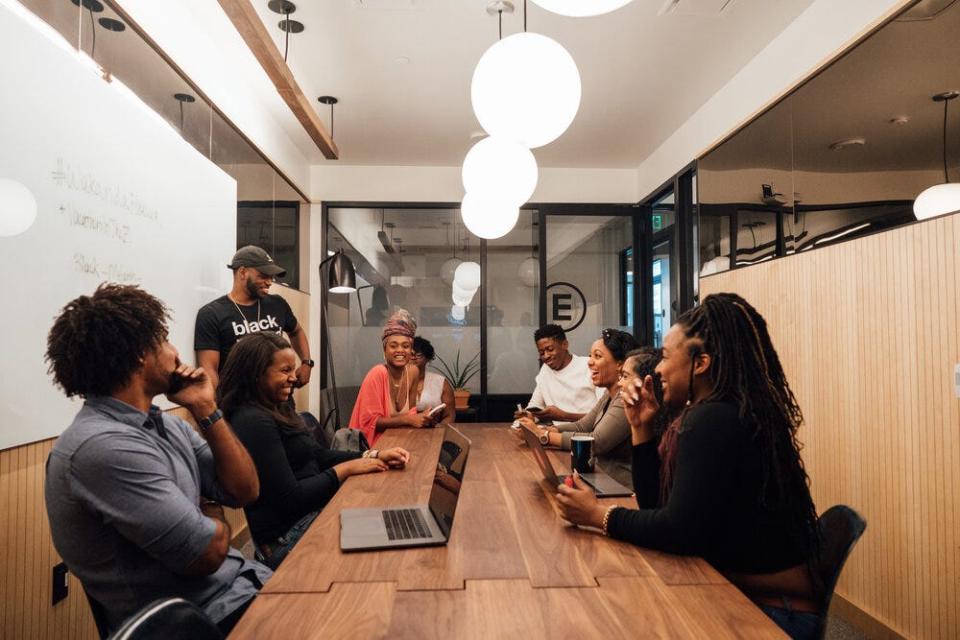
One evening in November 2016, 16 people crowded into the living room of Maryanna Quigless’ apartment in San Francisco’s Mission District. But this was no casual get-together.
All of them worked at technology companies as product managers. All of them were Black. And they were gathering over glasses of juice and wine to share their work experiences.
Being “the only” or “the few” at their companies. Not feeling comfortable asking for help or being themselves. Code-switching. A few gave “lightning talks” on product challenges they’d tackled so others could learn from them.
“As one of the few Black faces leading product, I didn’t have that community in my day-to-day job,” said Quigless, a startup founder who had recently shifted careers to manage a product team at Facebook.
Surrounded by her peers, she says she felt comfortable asking for advice without worrying how she would be perceived, much like the semester she took off from Dartmouth University to study at historically Black Spelman College.
“We ended up hanging out all night. I think people trickled out at 11 or 12 because everyone was getting this community we were lacking, this feeling that I am not the only, that I can be myself and I can learn from folks who look like me,” she said.
That yearning for a support network was more universal than Quigless realized. Today, Black Product Managers is a 1,100-member grassroots organization.
Founded by Quigless, Jules Walter, a product leader at Google’s YouTube, and Brittany Bankston, a senior product manager at startup MainStreet, the group’s mission is to bring more Black people into product management roles and to get more Black product managers promoted into leadership positions.
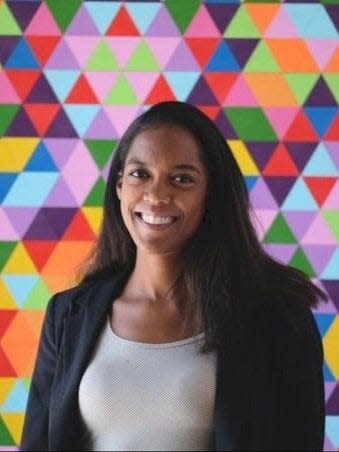
Inside tech companies, product managers play a vital role. They are like mini-CEOs who help their companies decide what products and features to build and work with teams from across the company including engineering, design and marketing to get them built.
Building products for millions, and sometimes billions of users is also a lucrative career, with the national average salary for a product manager hovering around $110,000. Senior product managers may run teams with more than 100 people, roles that can be a stepping stone to top industry posts such as startup founder, chief executive officer, or venture capitalist.
But product management is a tough career to break into. And, even though Black people often over index as users of tech products, they make up a tiny fraction of product managers, part of an industrywide diversity shortfall in the predominantly white and male tech world.
Less than 2%: Why are there still so few Black executives in America?
Black employees ask if they matter: George Floyd protests lead to reckoning as Black employees speak out on racism and discrimination in the workplace
Silicon Valley has a race problem
“The industry needs to wake up to this reality that representation isn’t just about putting a few Black people in roles. It’s about hiring Black people in high-leverage roles of which product is one,” Quigless said. “We are responsible for decisions for entire products and we want to see more Black people in this role.”
For years, Silicon Valley has tried to address yawning racial disparities with little success.
Analyses by USA TODAY and others show major tech companies employ far fewer women and underrepresented minorities than other industries, even in Silicon Valley. According to the most recent U.S. government data released in 2016, African Americans make up 3% of employees in the top 75 tech firms in Silicon Valley, while they hold 24% of the jobs in non-tech firms.
And it's not just in technical roles. Minorities at Google and other major tech companies are sharply underrepresented in non-technical jobs such as sales and administration, with African Americans faring noticeably worse than Hispanics, a USA TODAY analysis in 2014 revealed.
National unrest over systemic racism following the police killing of George Floyd has called even more attention to the dearth of Black people in tech firms. An outpouring of first-hand accounts of racial discrimination and bias on blogs, social media and in lawsuits often paint a grim picture of the tech industry, with people from non-majority culture groups labeled “diversity hires” and treated unfairly in everything from pay to promotions.
High-tech’s race problem comes with a growing sense of urgency. The industry risks losing touch with the increasingly diverse nation and world that form its consumer base. At the same time, African Americans are being shut out of some of the best-paid jobs in the U.S. economy.
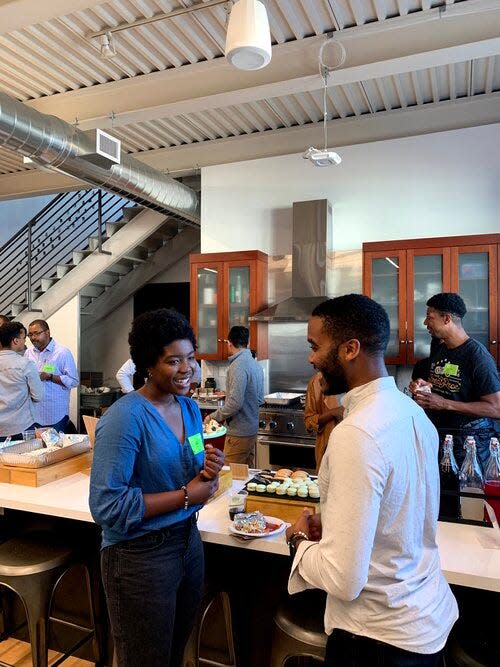
Could diverse teams build less racist products?
More diverse voices taking part in the development process can help companies build more universally appealing products, Quigless said.
And more diverse teams are less likely to build products that are inadvertently racist. Search results that show smiling white teenagers and mugshots of Black teenagers. Instagram filters that lighten skin or fetishize ethnic features. Snapchat filters that use blackface or caricatures of Asians. Microsoft’s racist chatbot Tay. Google Photos labeling Black people as gorillas.
Tech companies are taking steps to make products more inclusive. This week, Snapchat, which last year had to apologize for a Juneteenth filter that asked subjects to "smile" while breaking free from chains, said it would redesign its camera technology so it can capture a wider range of skin tones. Axios reported that some 5 billion pictures are taken using Snapchat's camera each day and reflect how people see themselves and their friends.
Yet a recent survey by the Alliance for Global Inclusion, a coalition of five tech companies that includes Snapchat and Intel, found that only 1 in 12 major global companies has formal processes to make sure product design is inclusive of different cultural backgrounds and abilities.
“It’s important to really think about product development and that stage as one that is not neutral. We tend to think of product development like we think about a lot of things in this culture, which is that they are somehow walled off from discussions of race and they are simply not. The way that products get developed have race and racial inequality embedded in them,” said Jessie Daniels, a former product manager in the tech industry who is now a Hunter College sociology professor who studies race and technology.
“What we have to do is rethink the culture at many of these companies and the way that they are reproducing racial inequality, often unintentionally," she said.
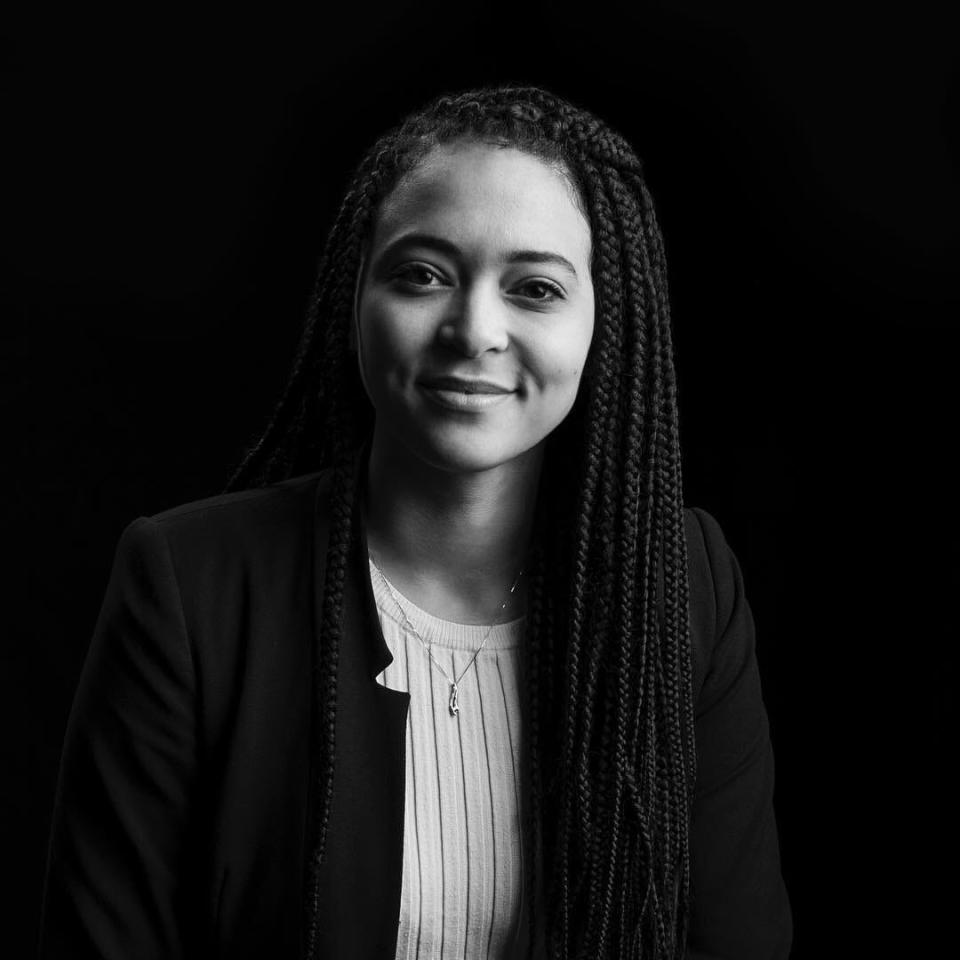
Quigless says she routinely spots problems with features in the products she uses daily and thinks to herself: “A Black person hasn’t seen this or hasn’t been consulted on this.”
She bristles that the default emojis on Venmo are yellow, making it appear as if a white person is paying. In Zoom meetings, her voluminous hair is cut off by smart backgrounds.
“What does it mean? It means I am being misrepresented,” she said. “And Black people don’t have the monopoly on being marginalized. This happens across so many different sectors of difference.”
Nurturing Black talent inside tech companies
Black Product Managers provides the professional network needed to nurture Black talent, Walter says. He’s experienced that firsthand.
Walter was nervous when he was hired as the first product manager on the growth team at Slack. Mentors like Bangaly Kaba, who used to head growth at Instagram, and Erin Teague, a director of product management at YouTube, helped him learn the ropes and think through tough problems. They also gave him tips on job advancement. Today, he returns the favor by helping other members of Black Product Managers negotiate the next step in their careers.
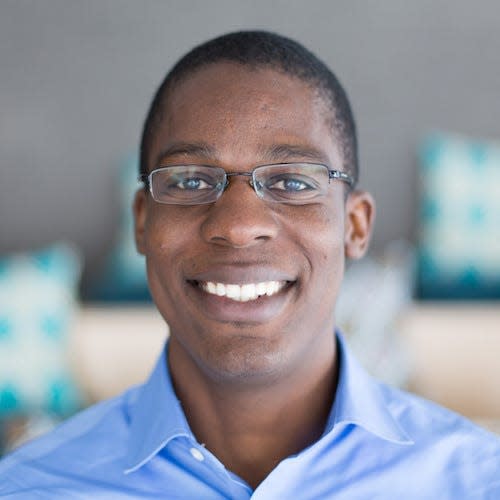
“Information asymmetry and lack of access are major issues in tech. Despite the large number of opportunities in the industry, many underrepresented people are not aware of these opportunities or don't have contacts to help them get access,” Walter said. “Through BPM’s community, members and allies are sharing what they know and opening up opportunities to Black talent.”
Last year, the 20 volunteers behind Black Product Managers put on 36 events and launched a handful of programs. The organization estimates it helped 50 people get promotions or new roles during that time.
“Through networks like BPM, people can change their wealth trajectory completely. They are recognizing – through mentorship and community – that they could be making two to three times as much and earning jobs they wouldn’t know about, but rightfully deserve,” Bankston said. “That’s the bigger picture here. We’re making sure our community of Black Product Managers are not locked out of long-term professional and economic opportunities.”
Now accepting reader submissions: Creating a gaming community at USA TODAY
This article originally appeared on USA TODAY: Facebook, Netflix, YouTube product managers fight to add Black talent

 Yahoo Finance
Yahoo Finance 